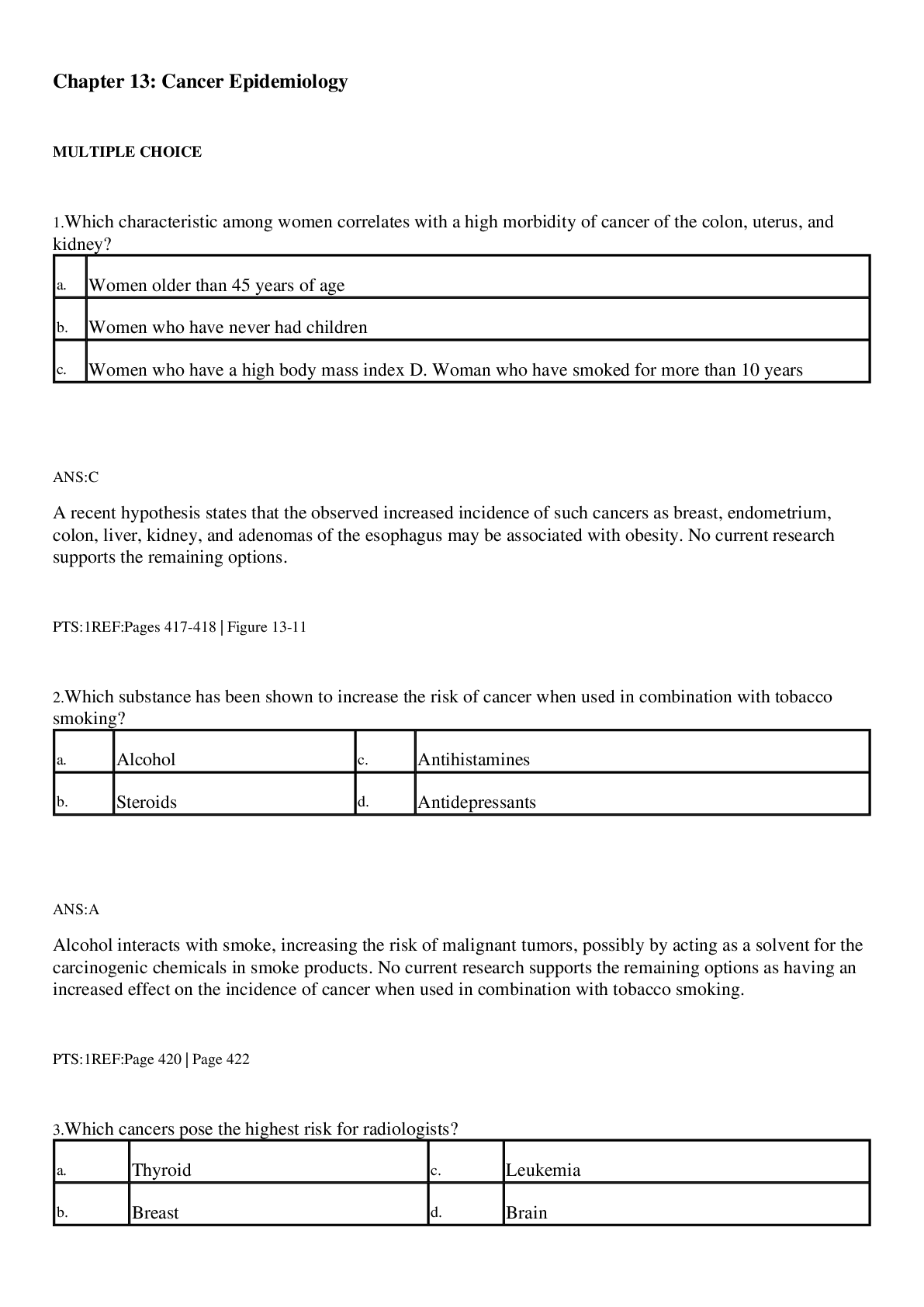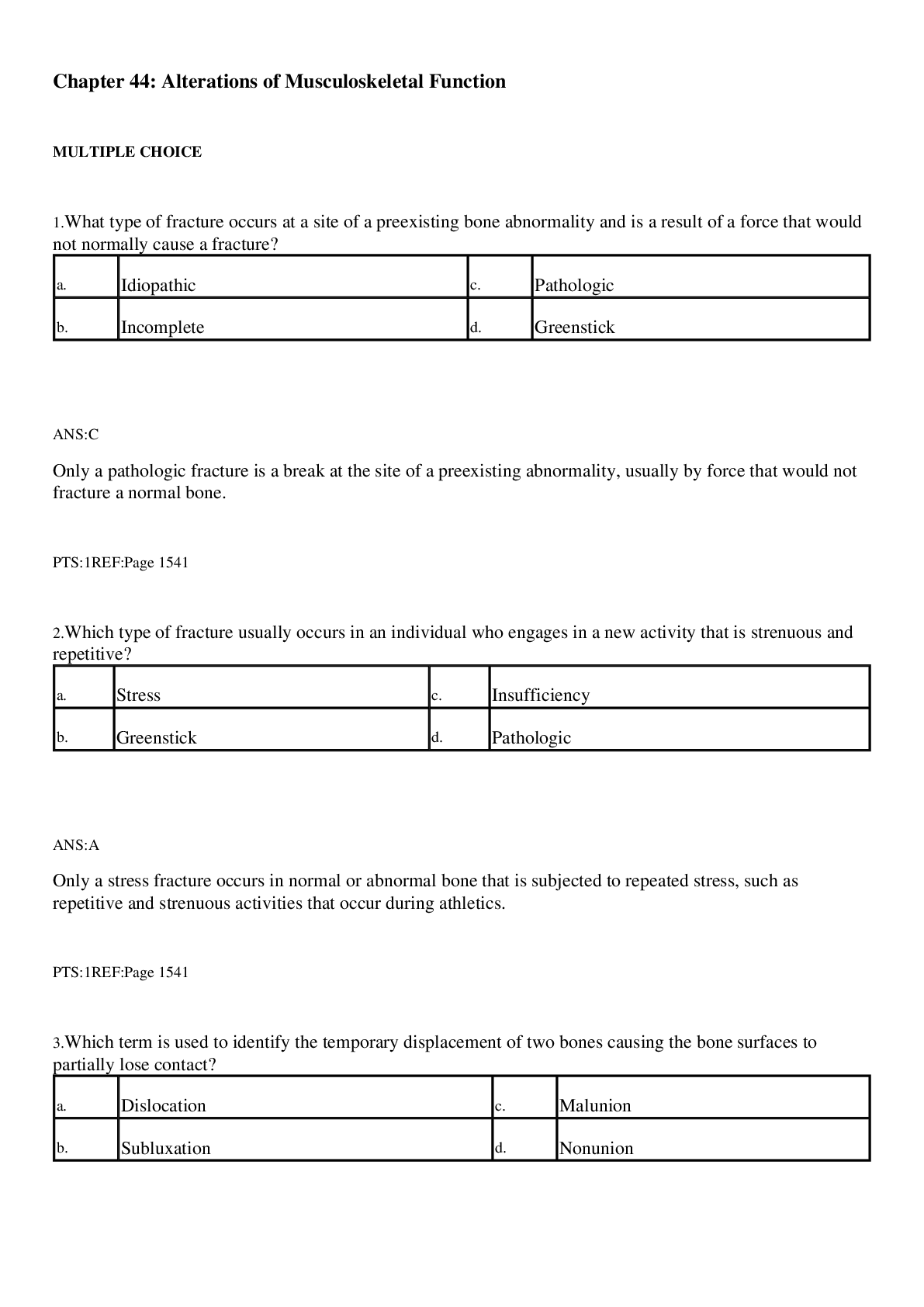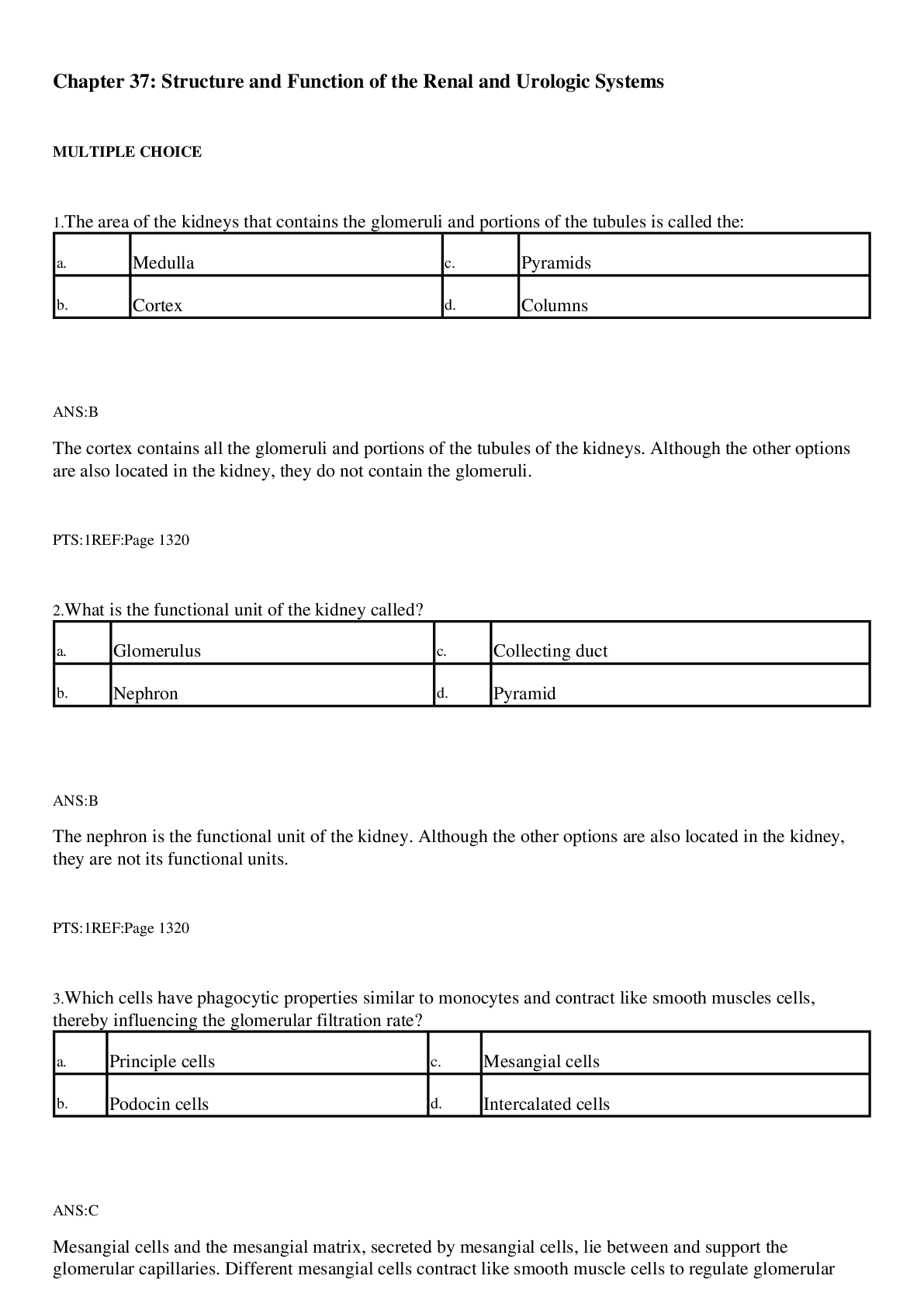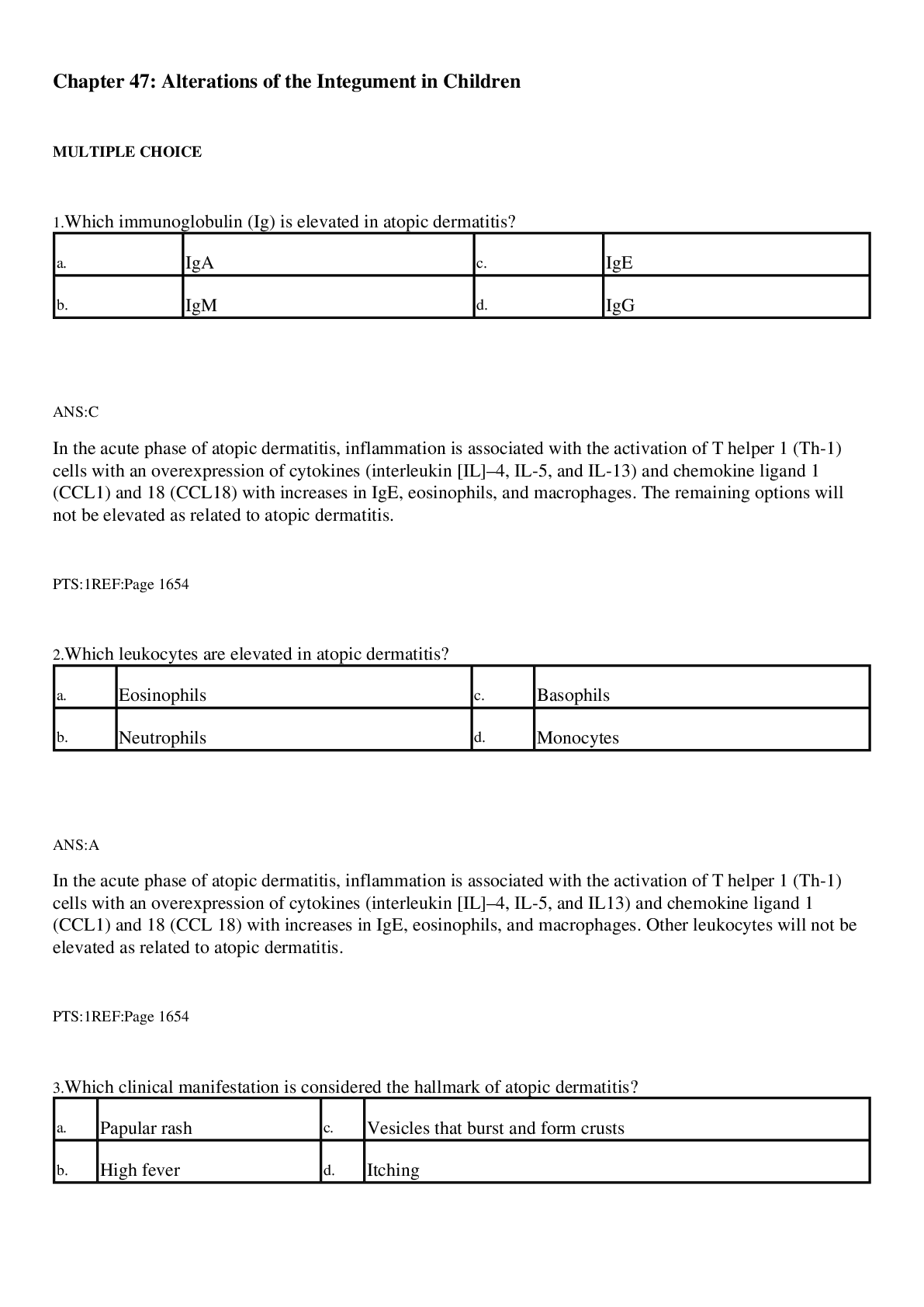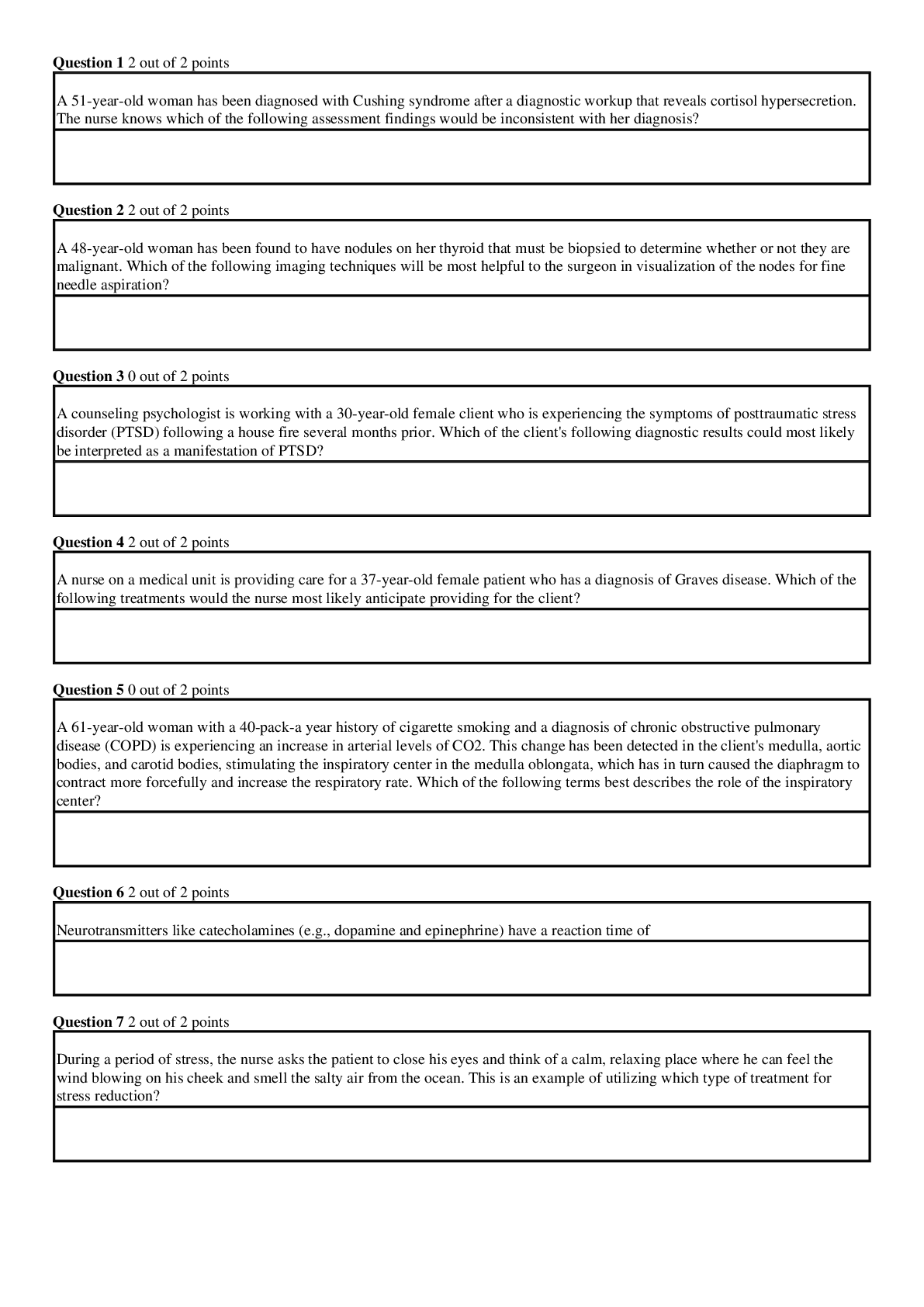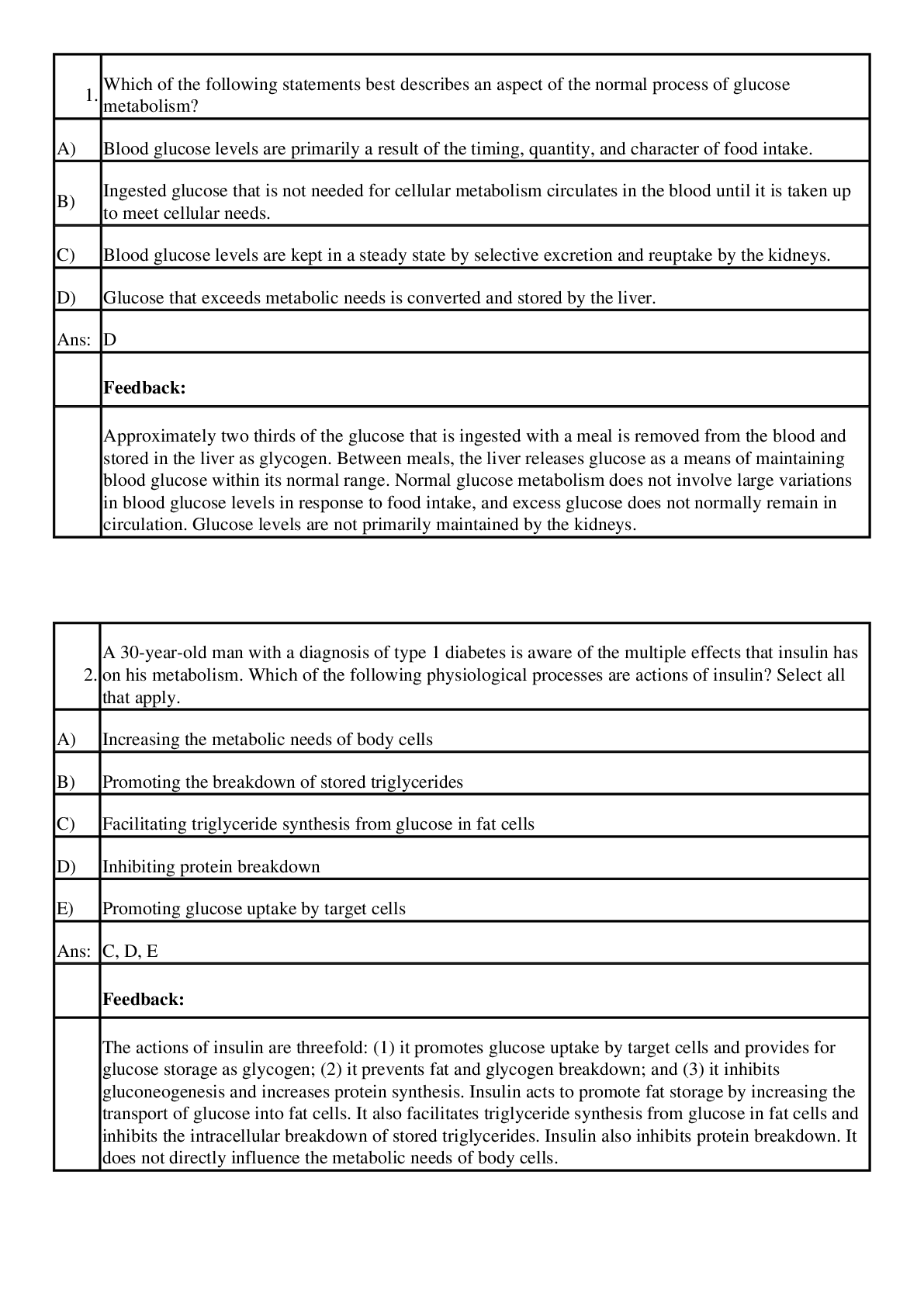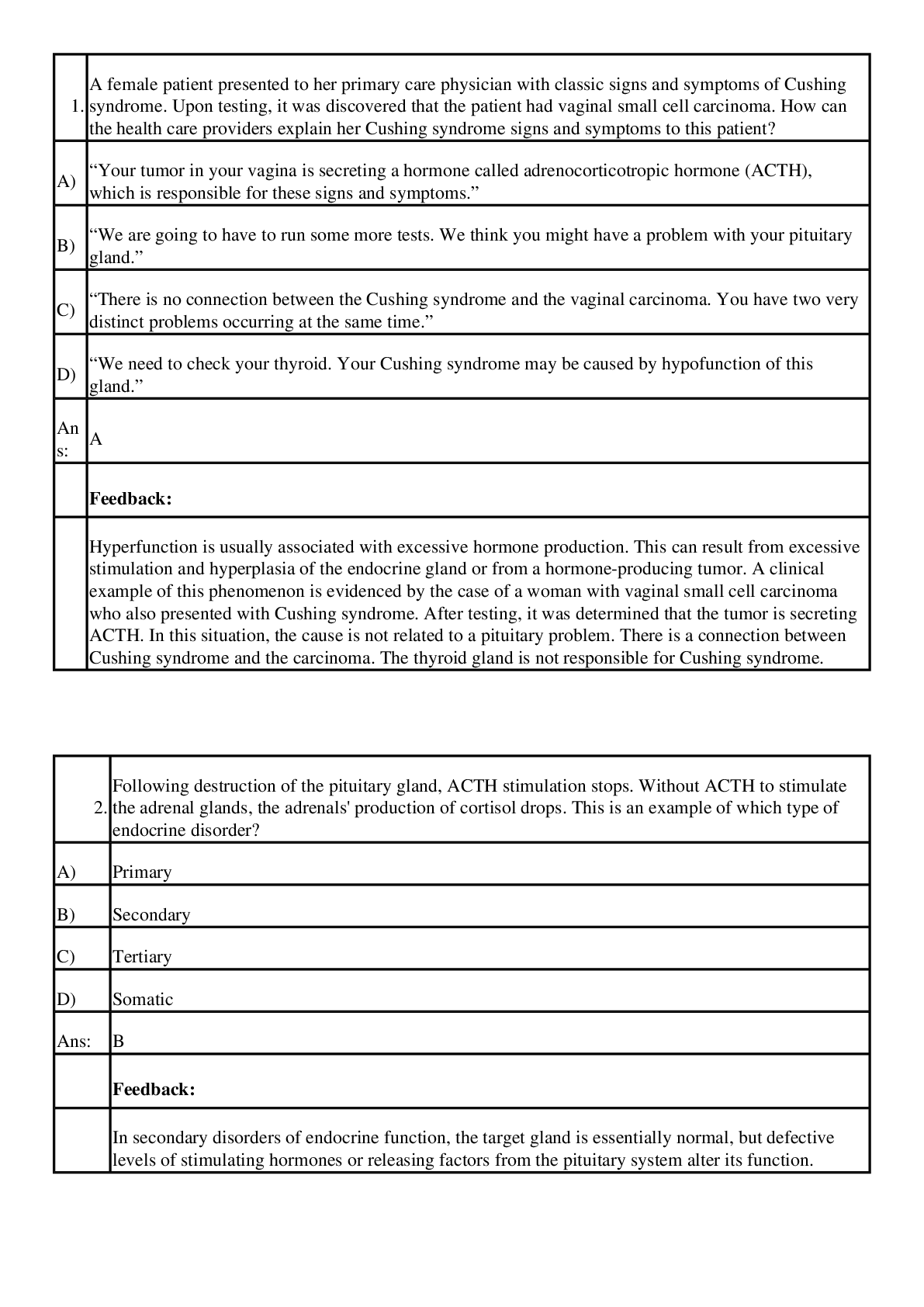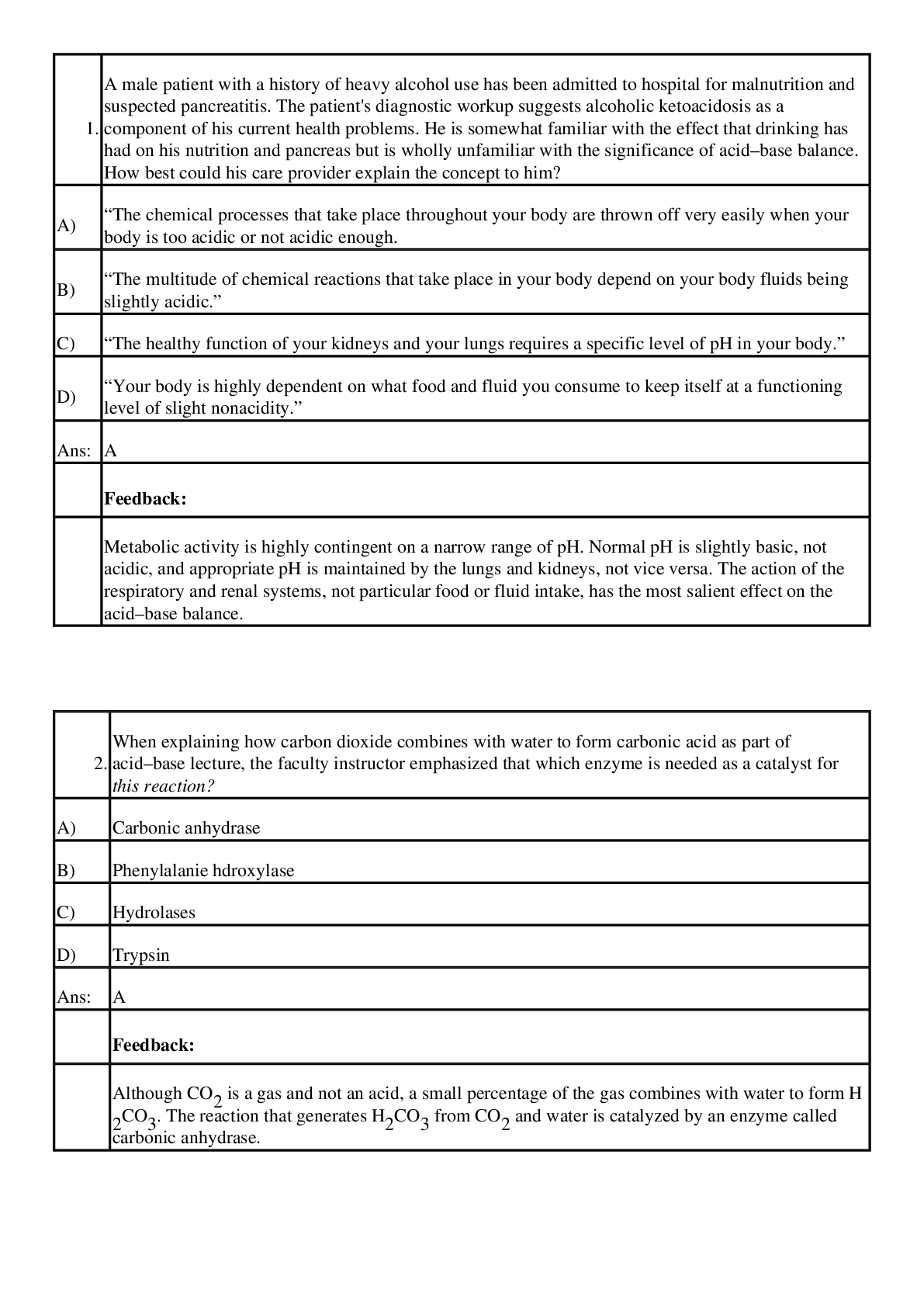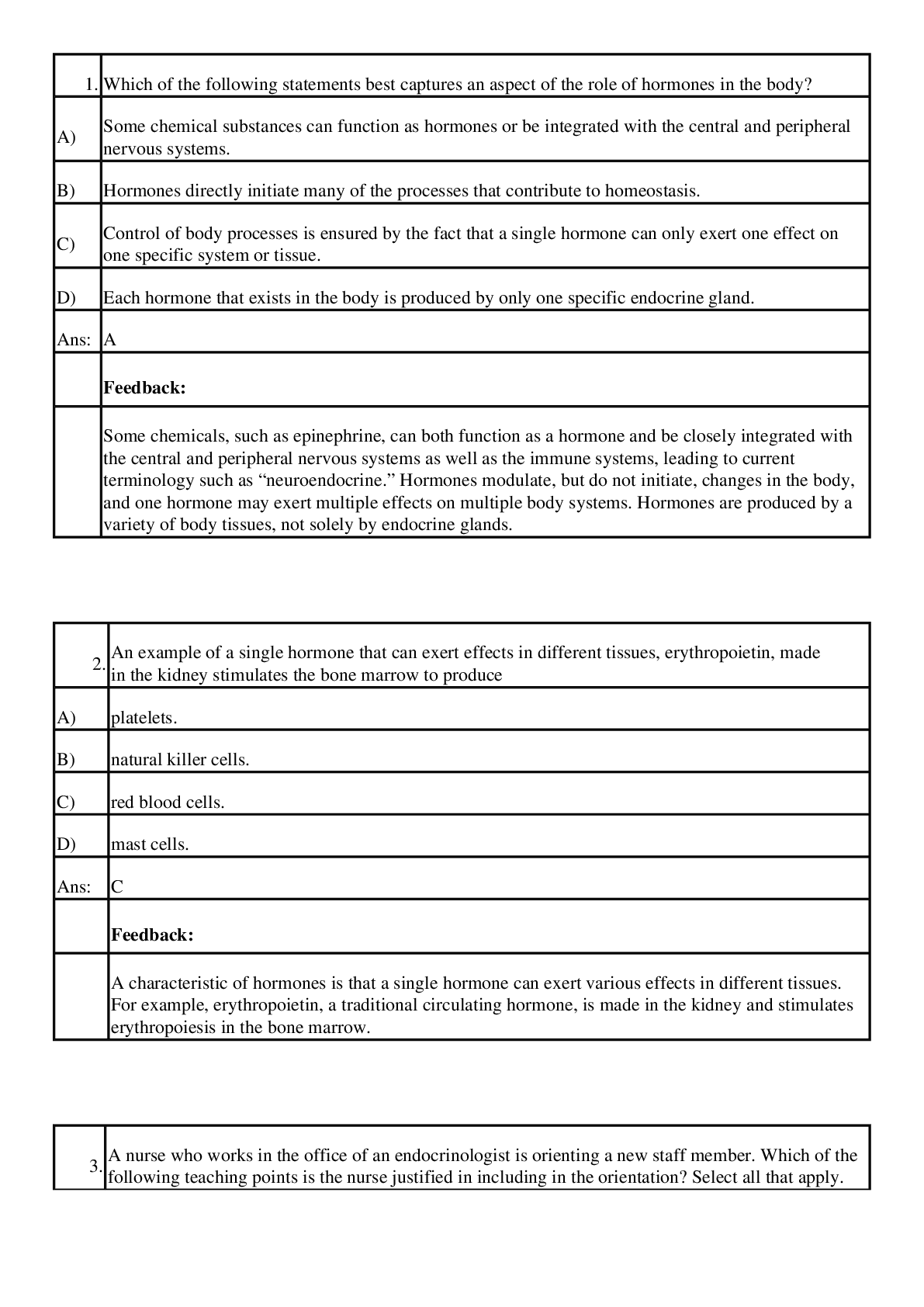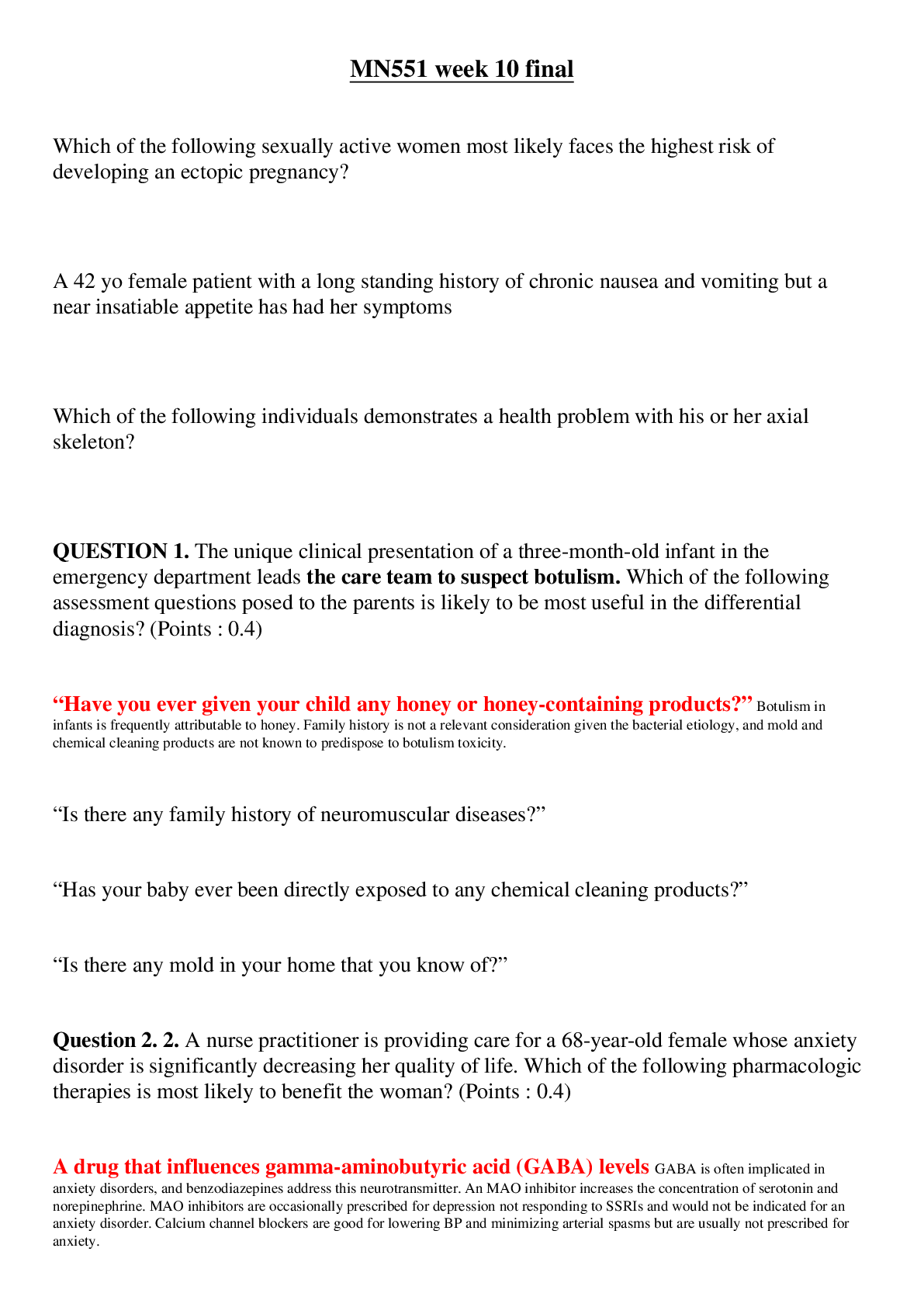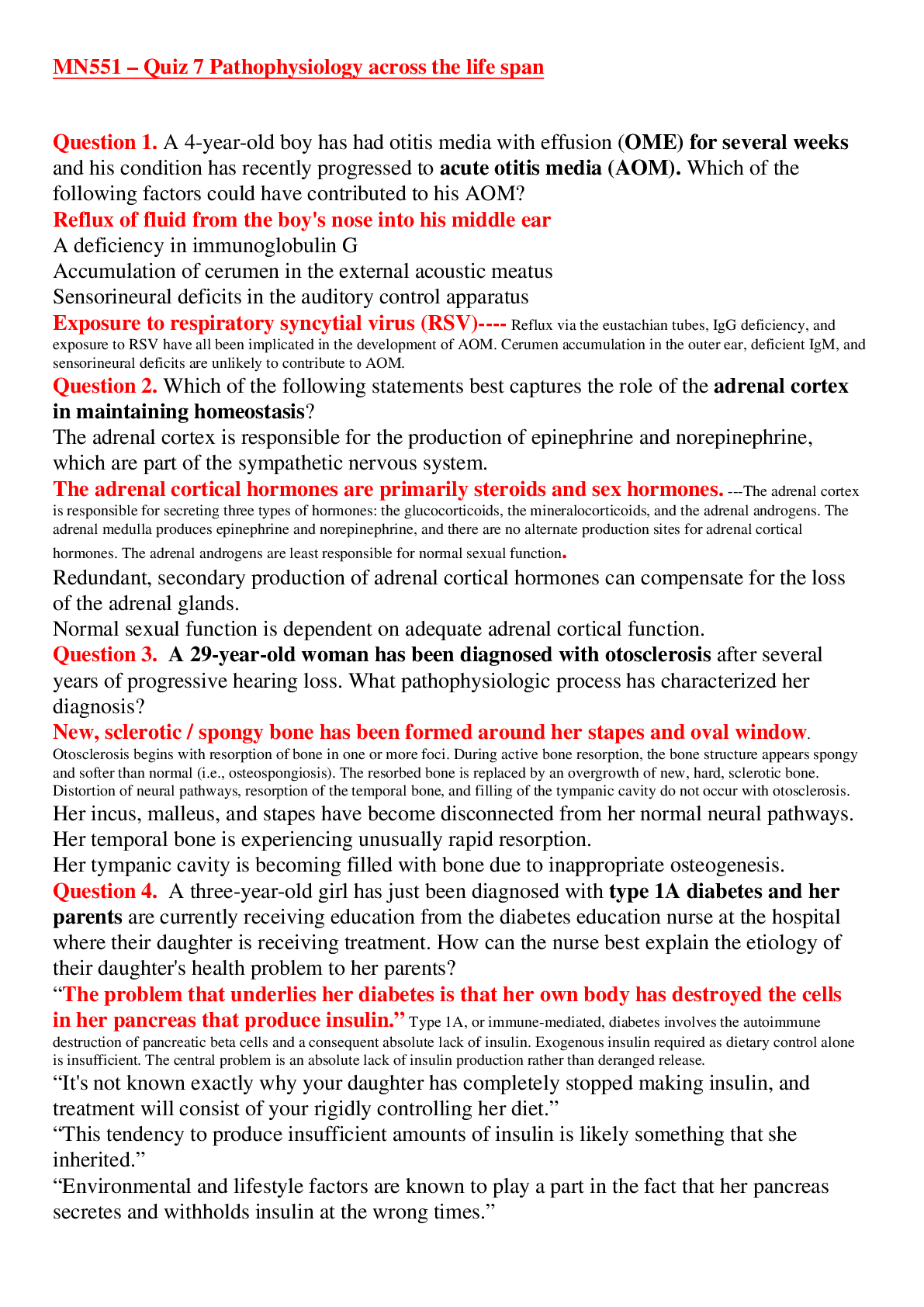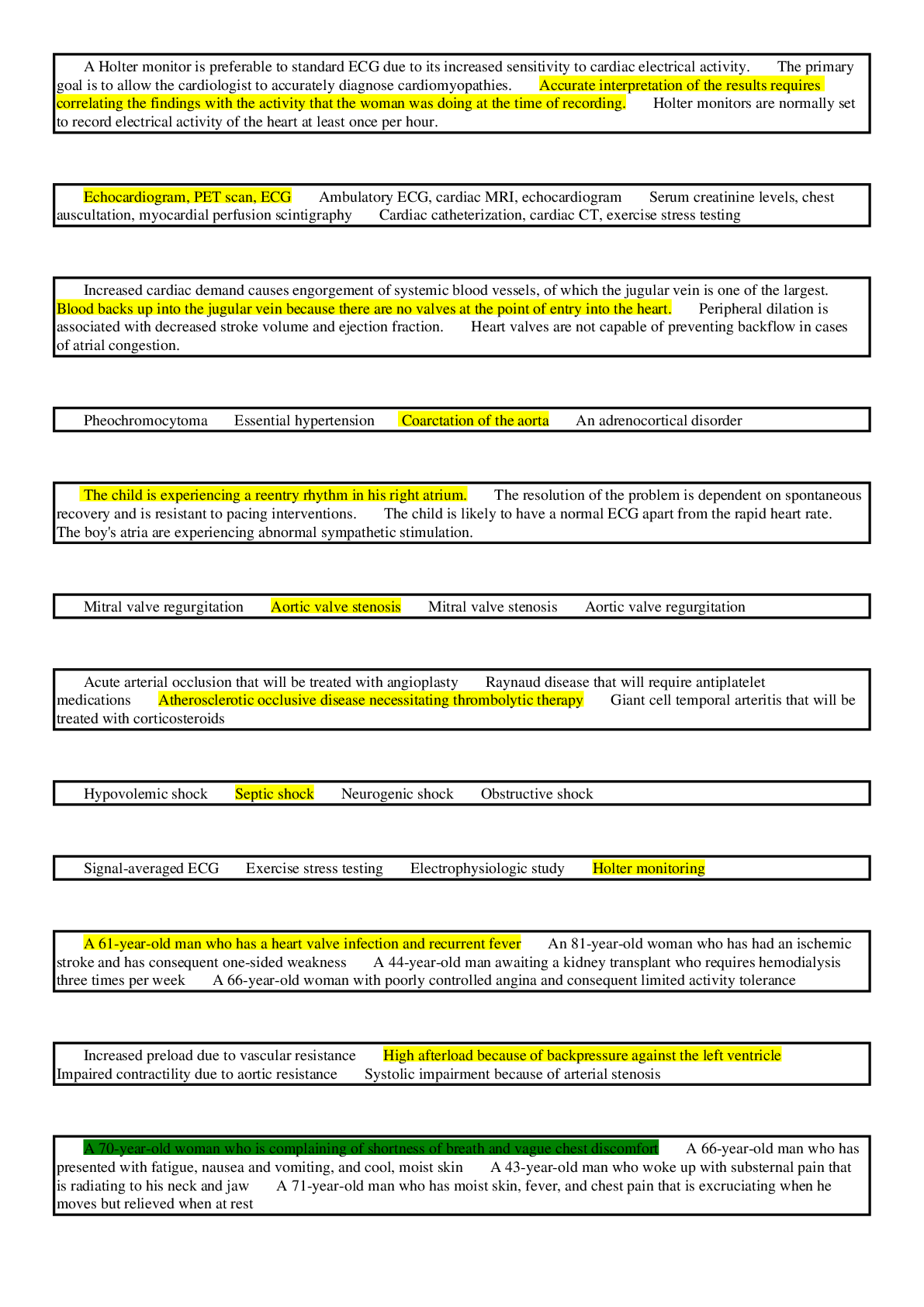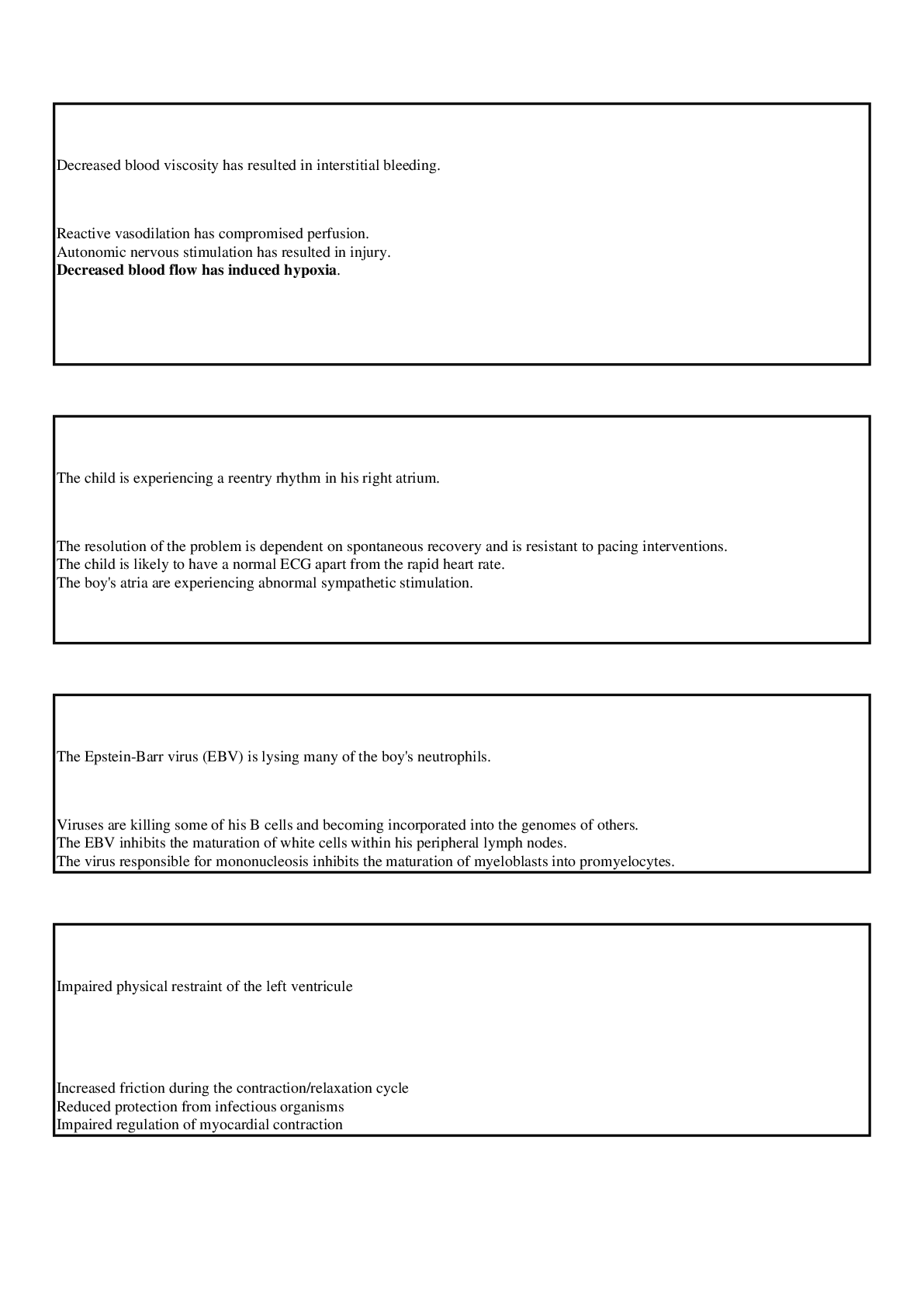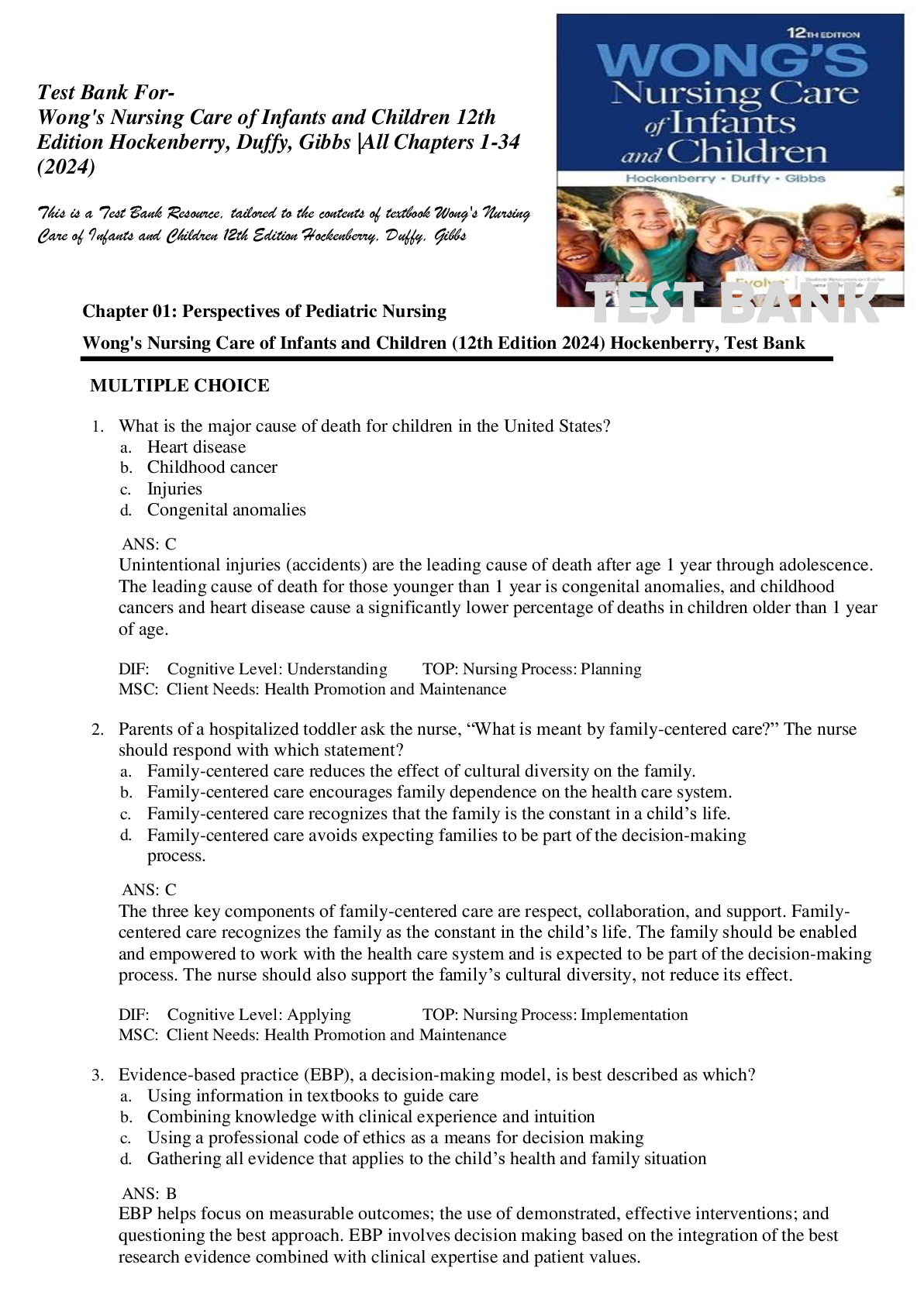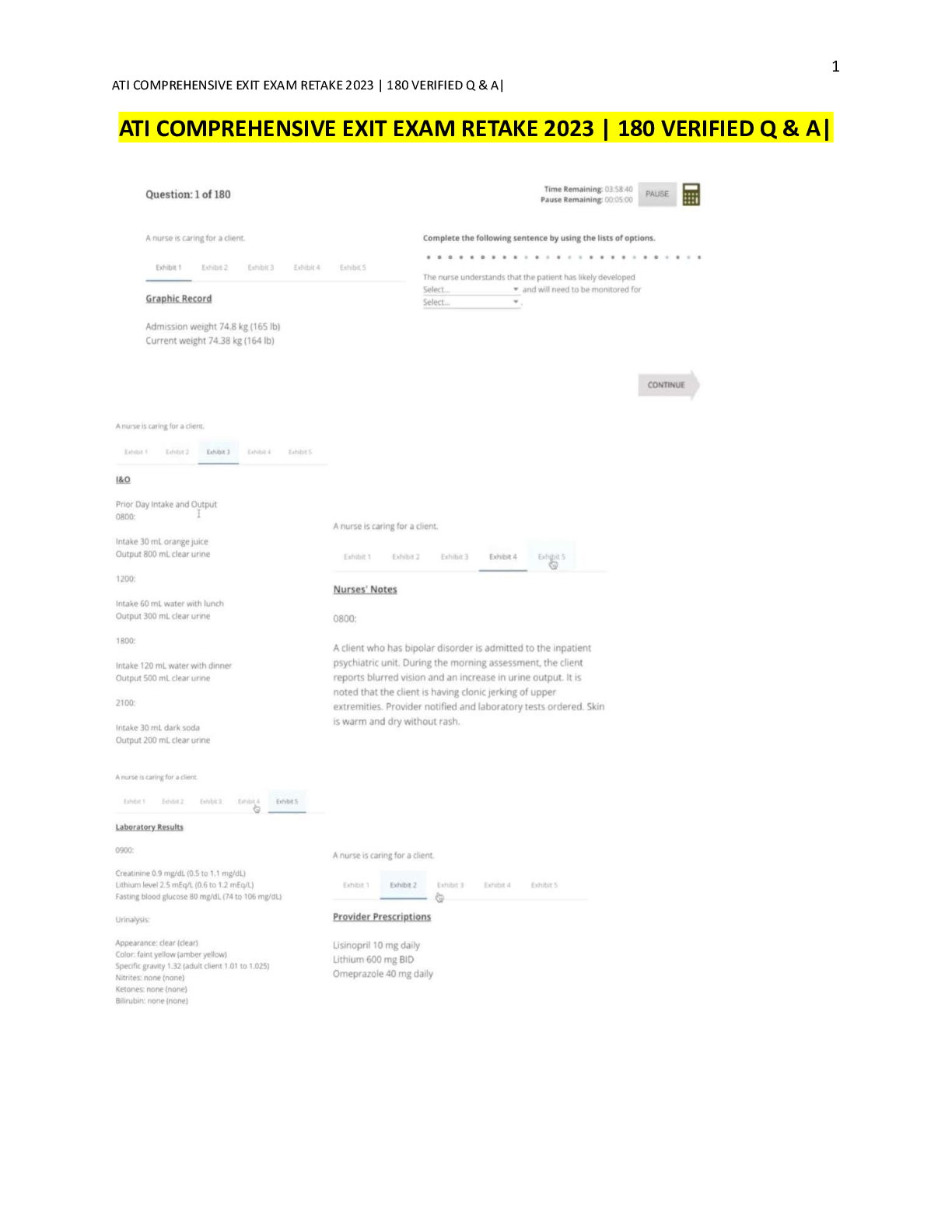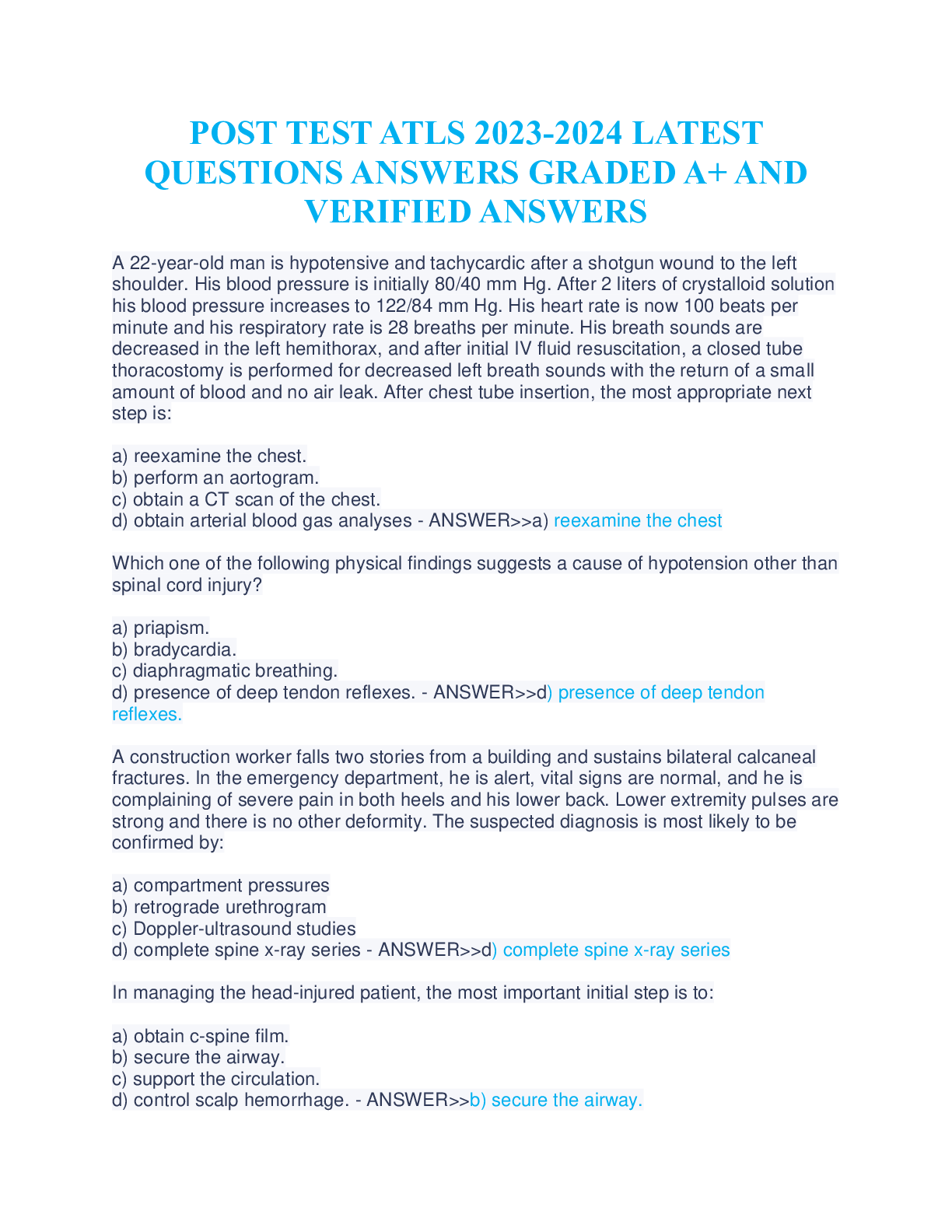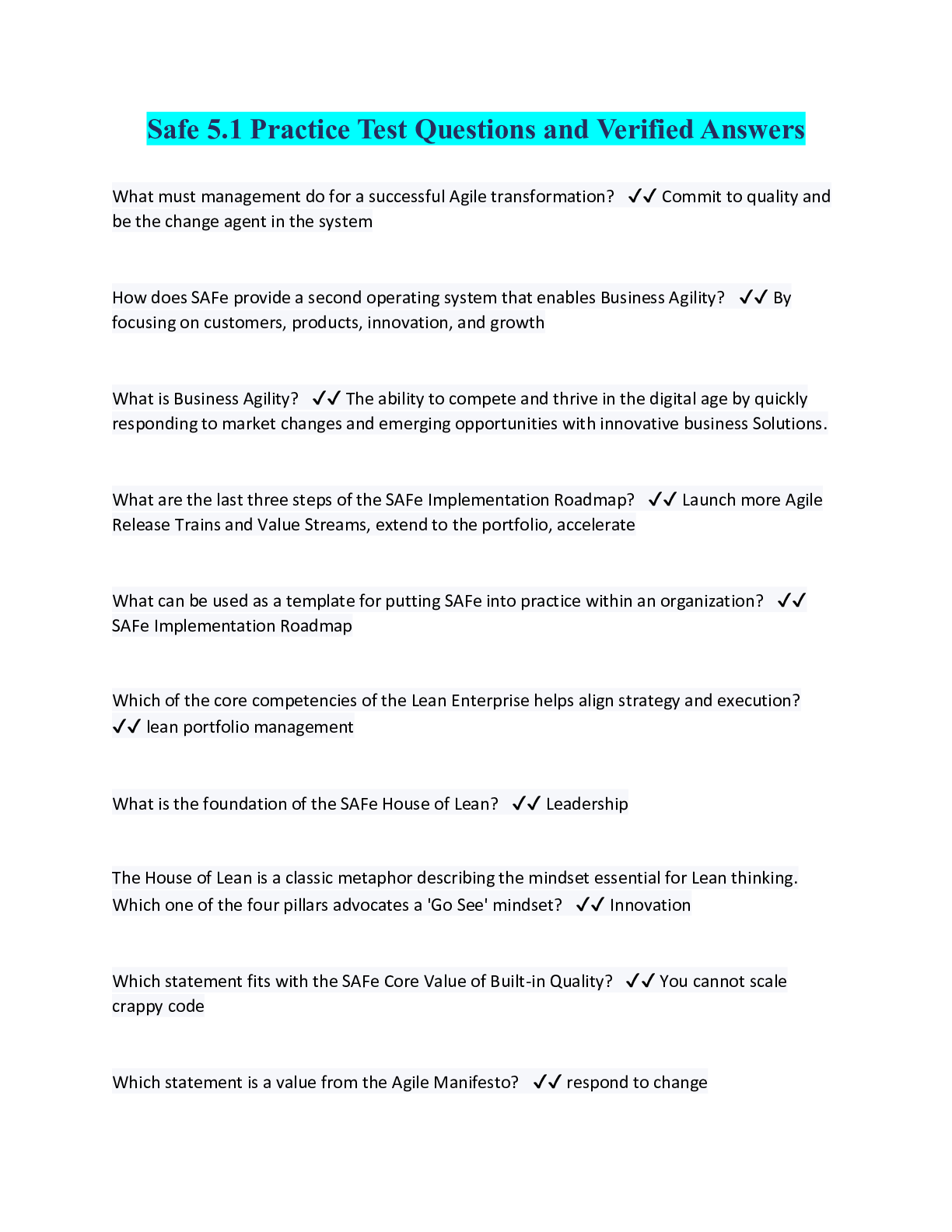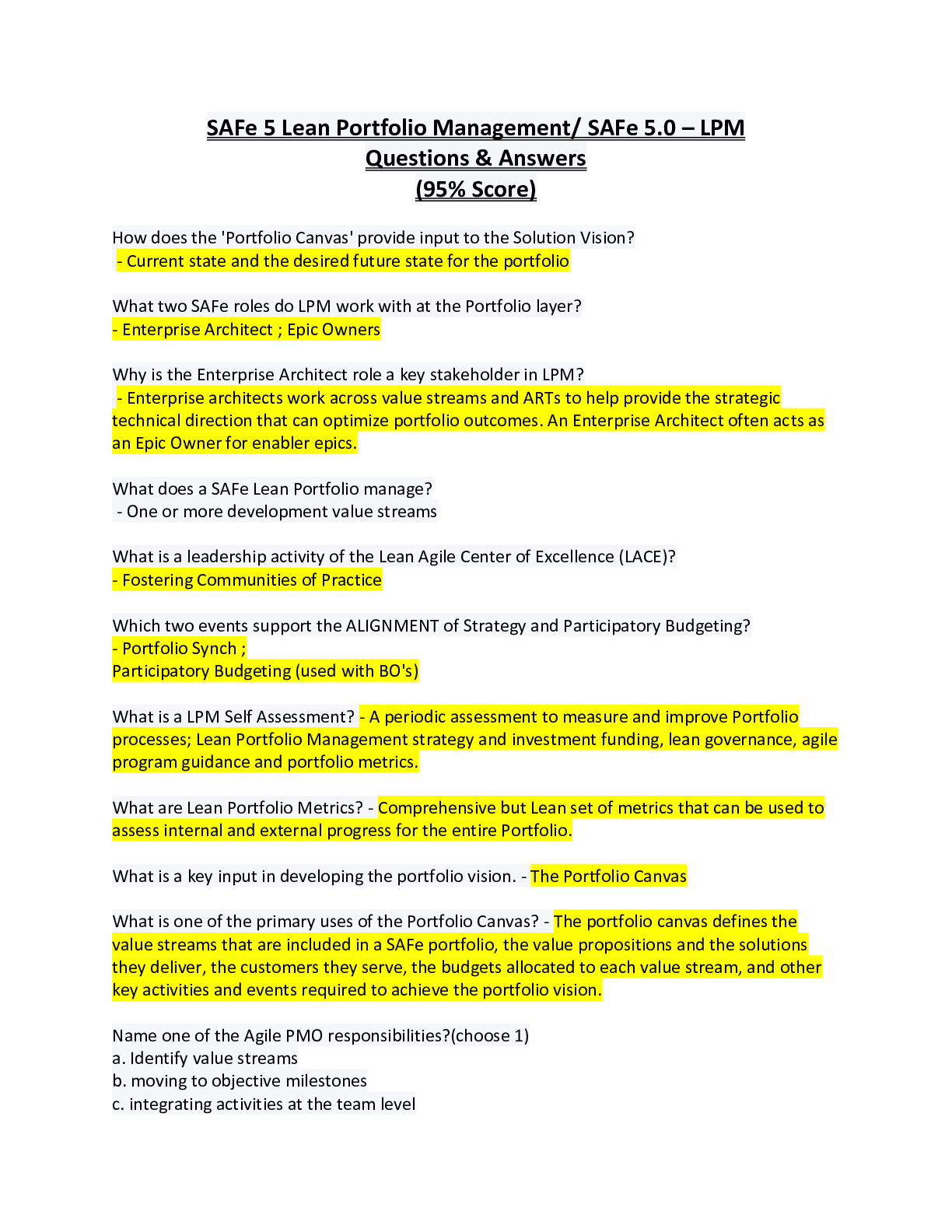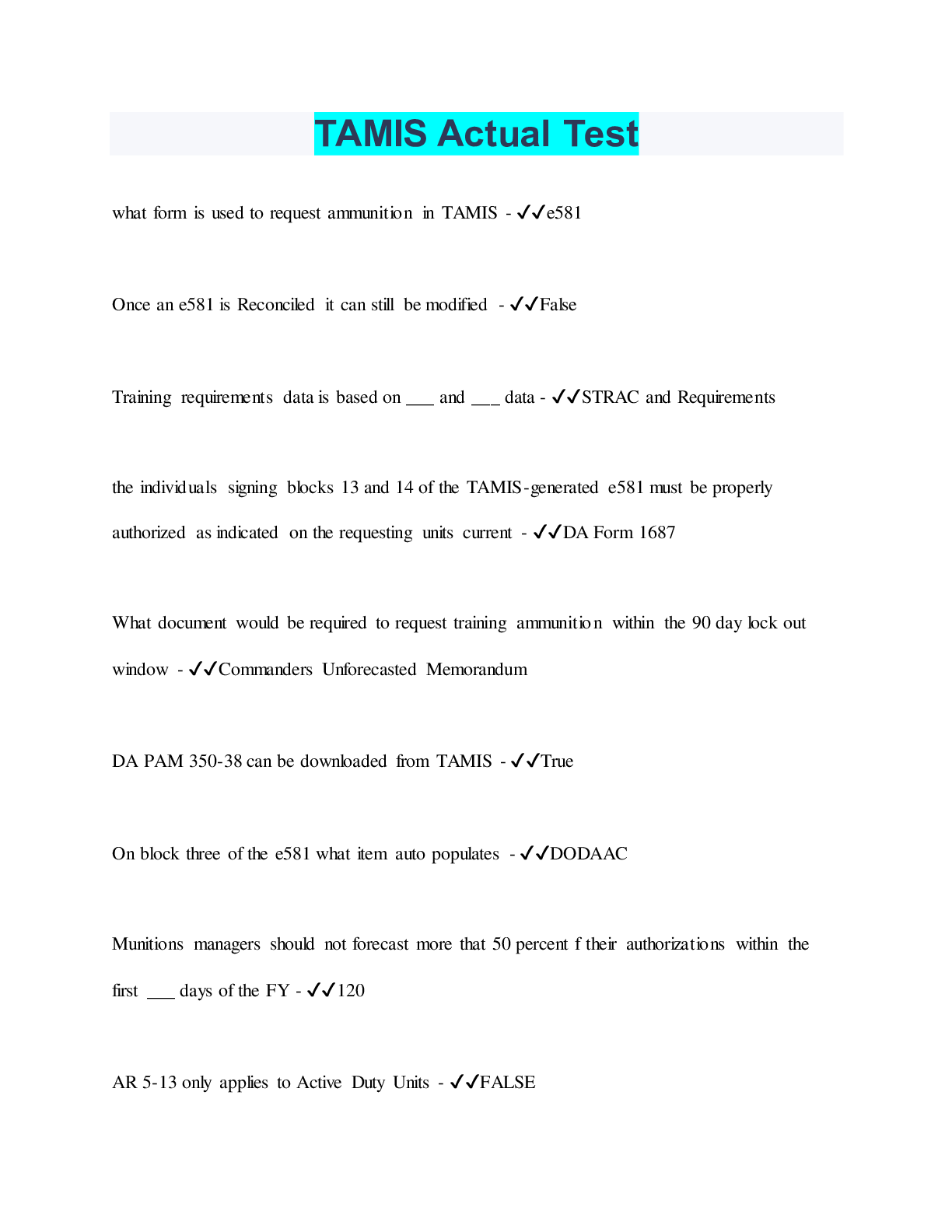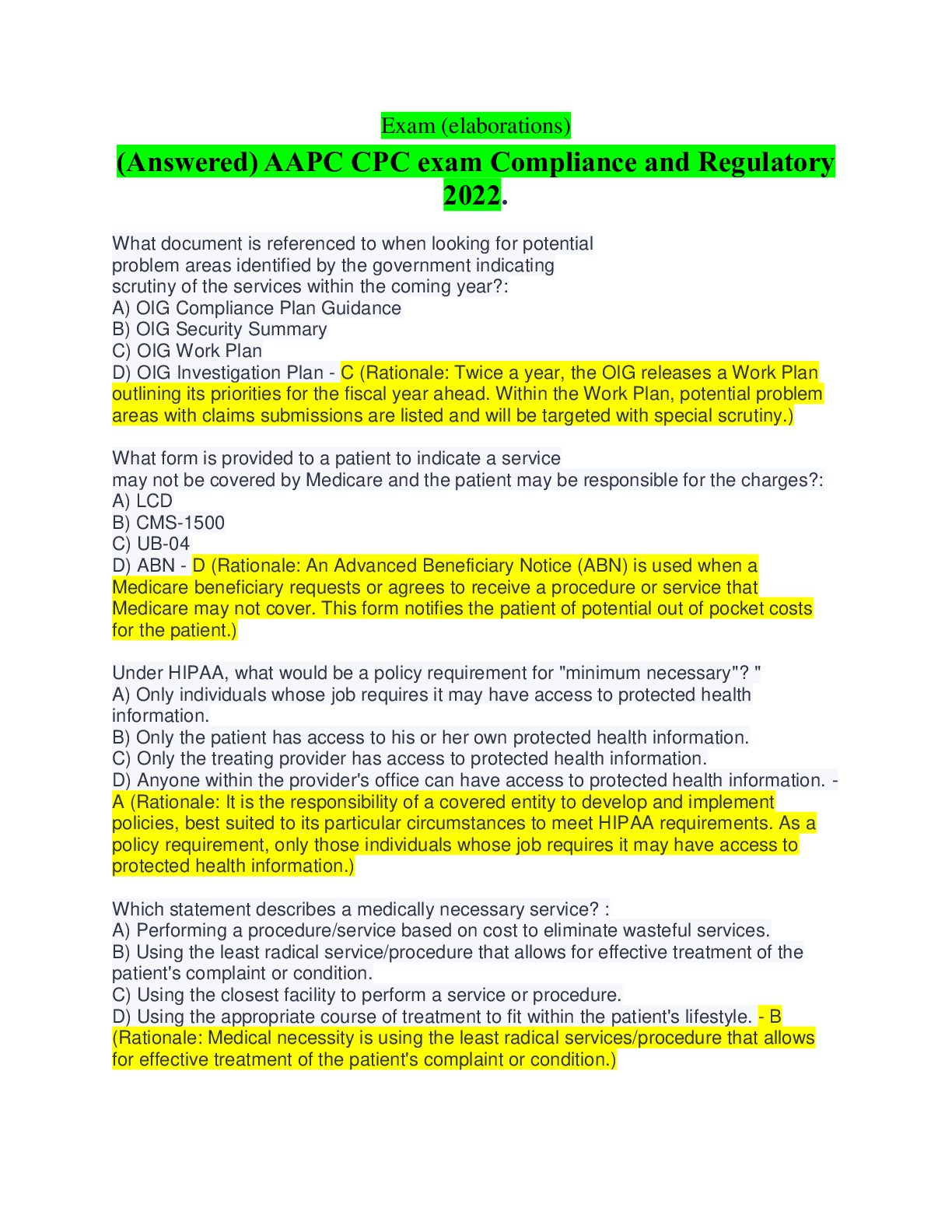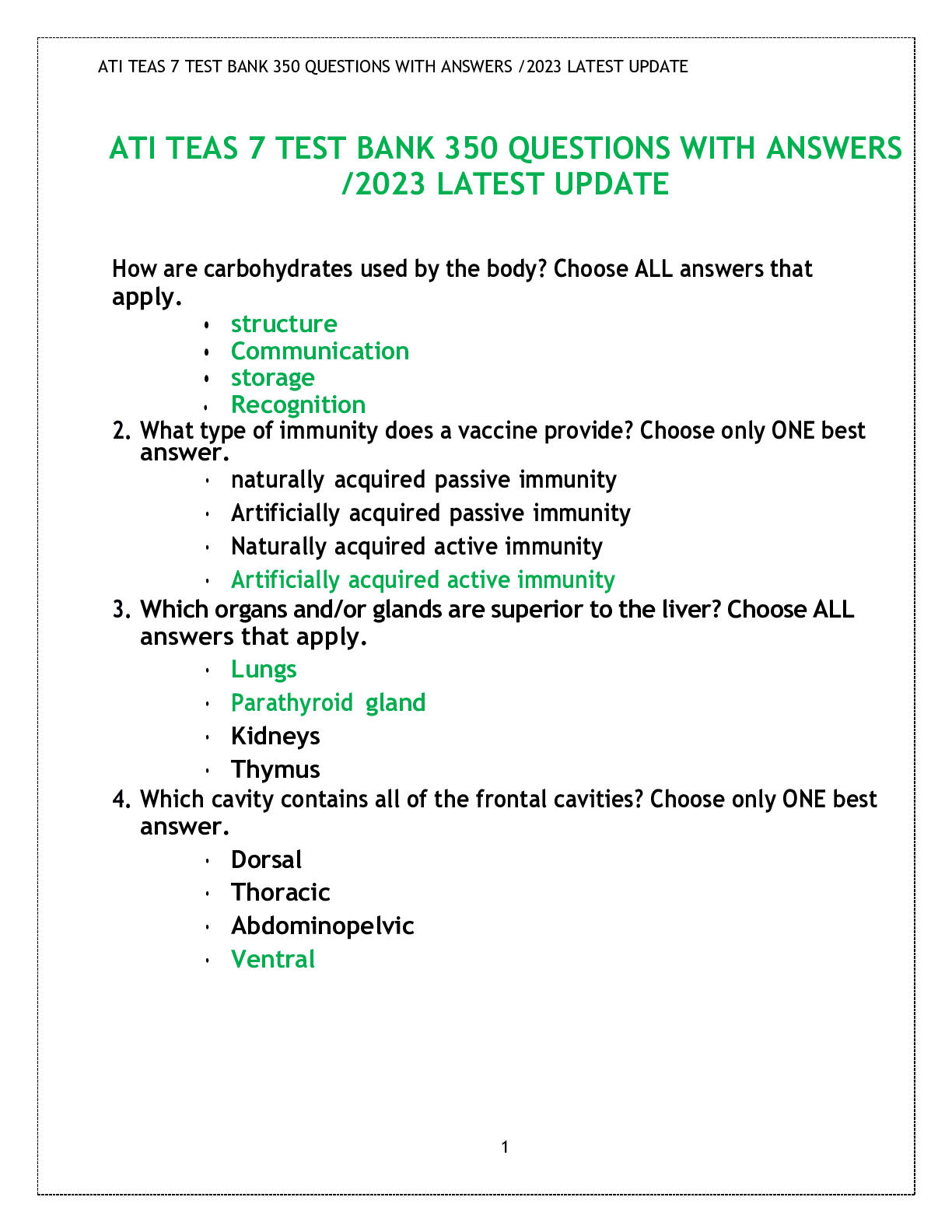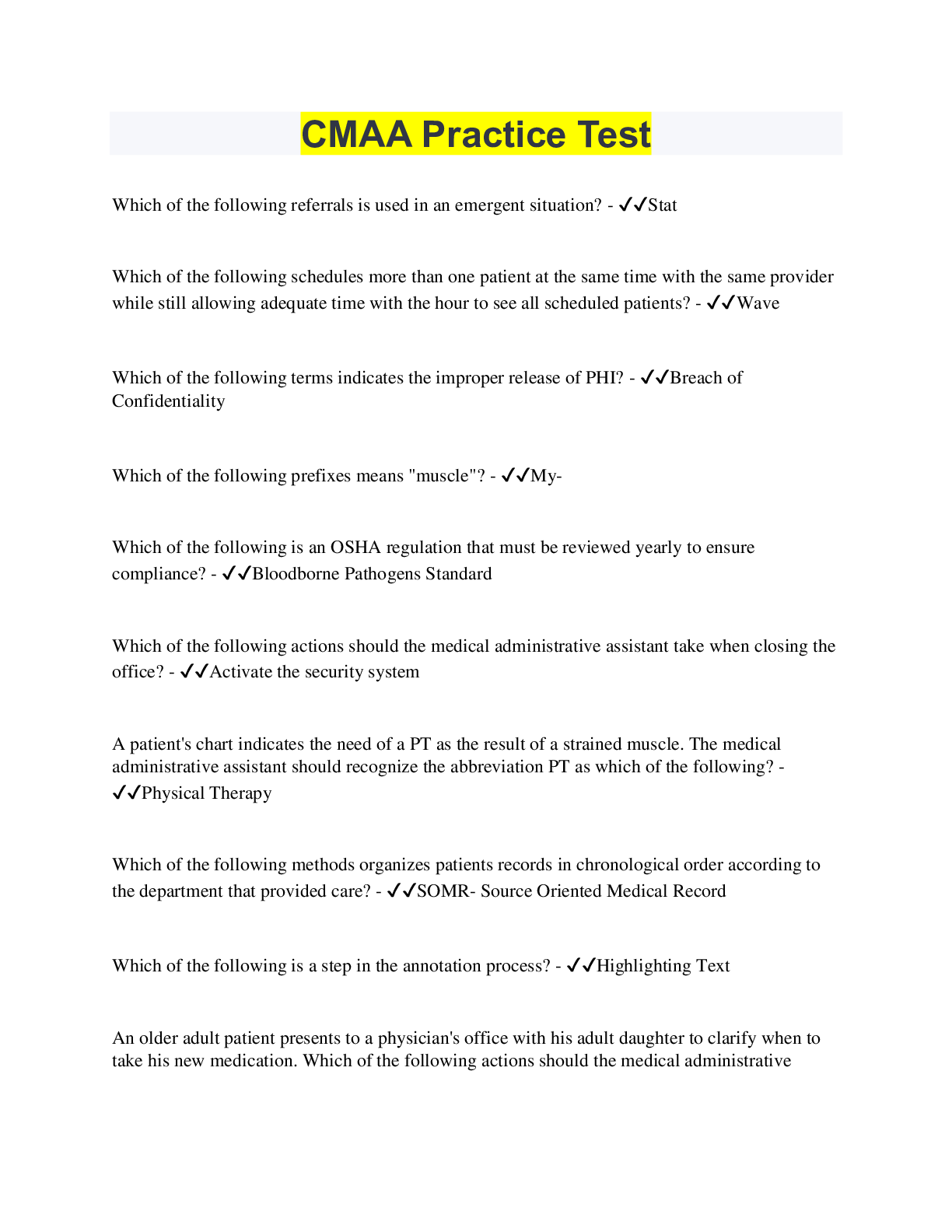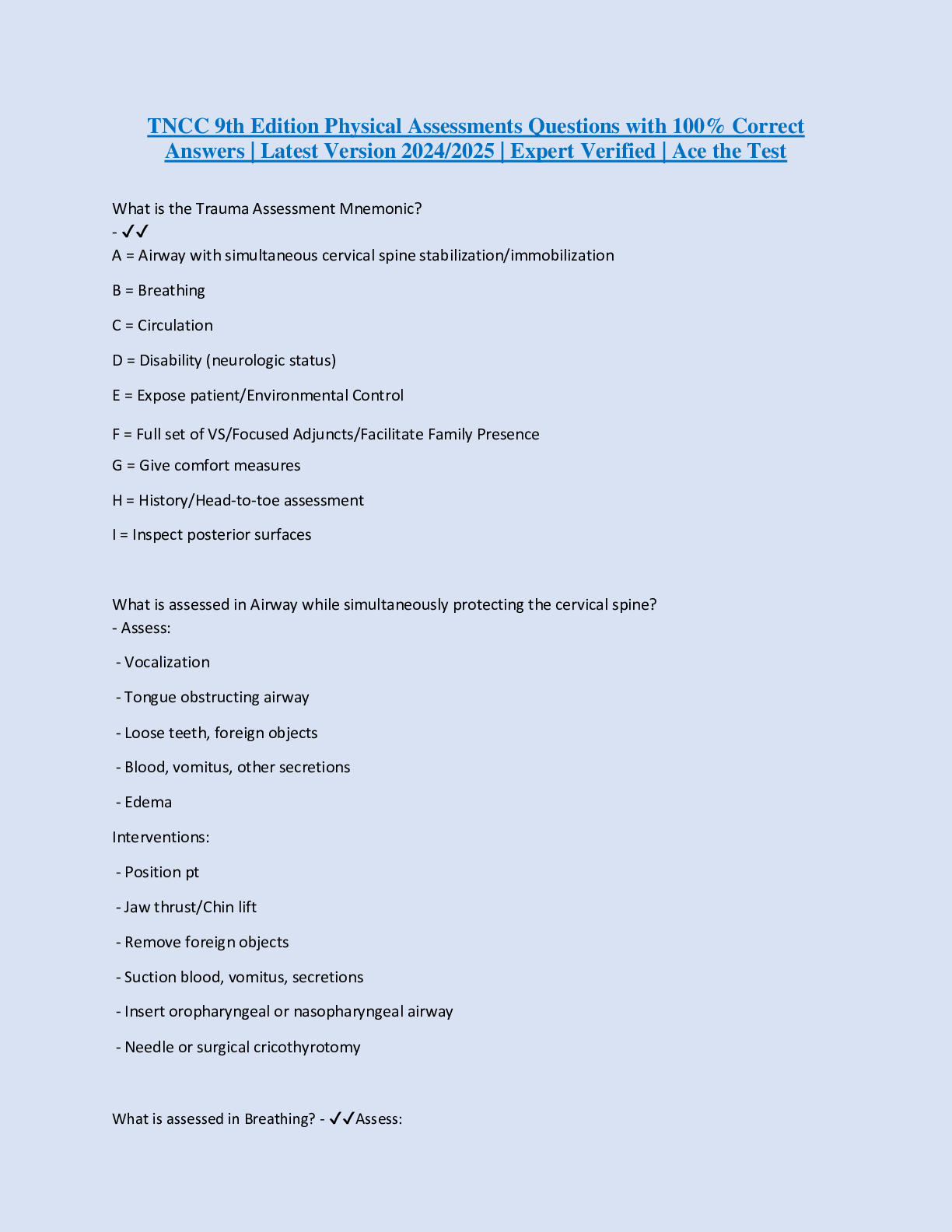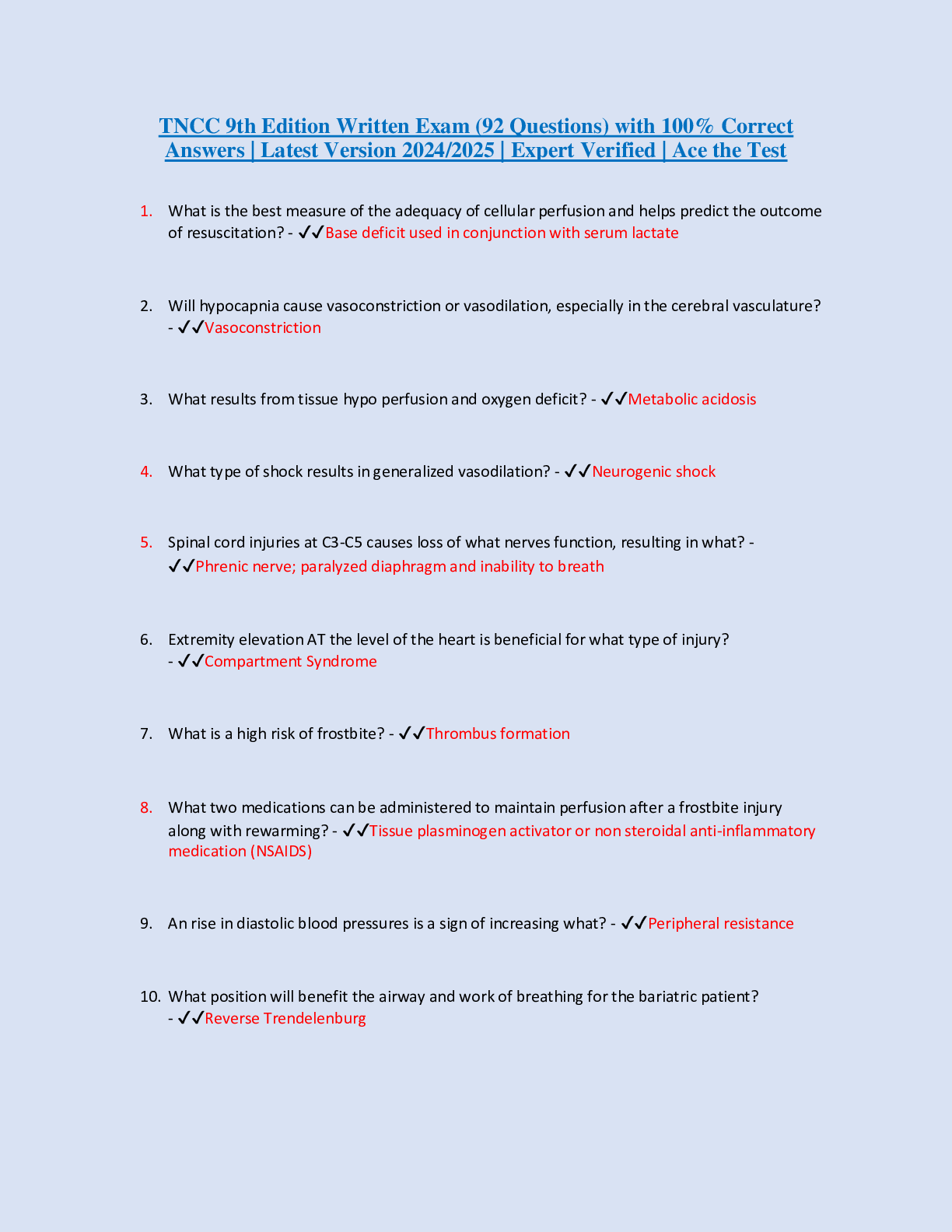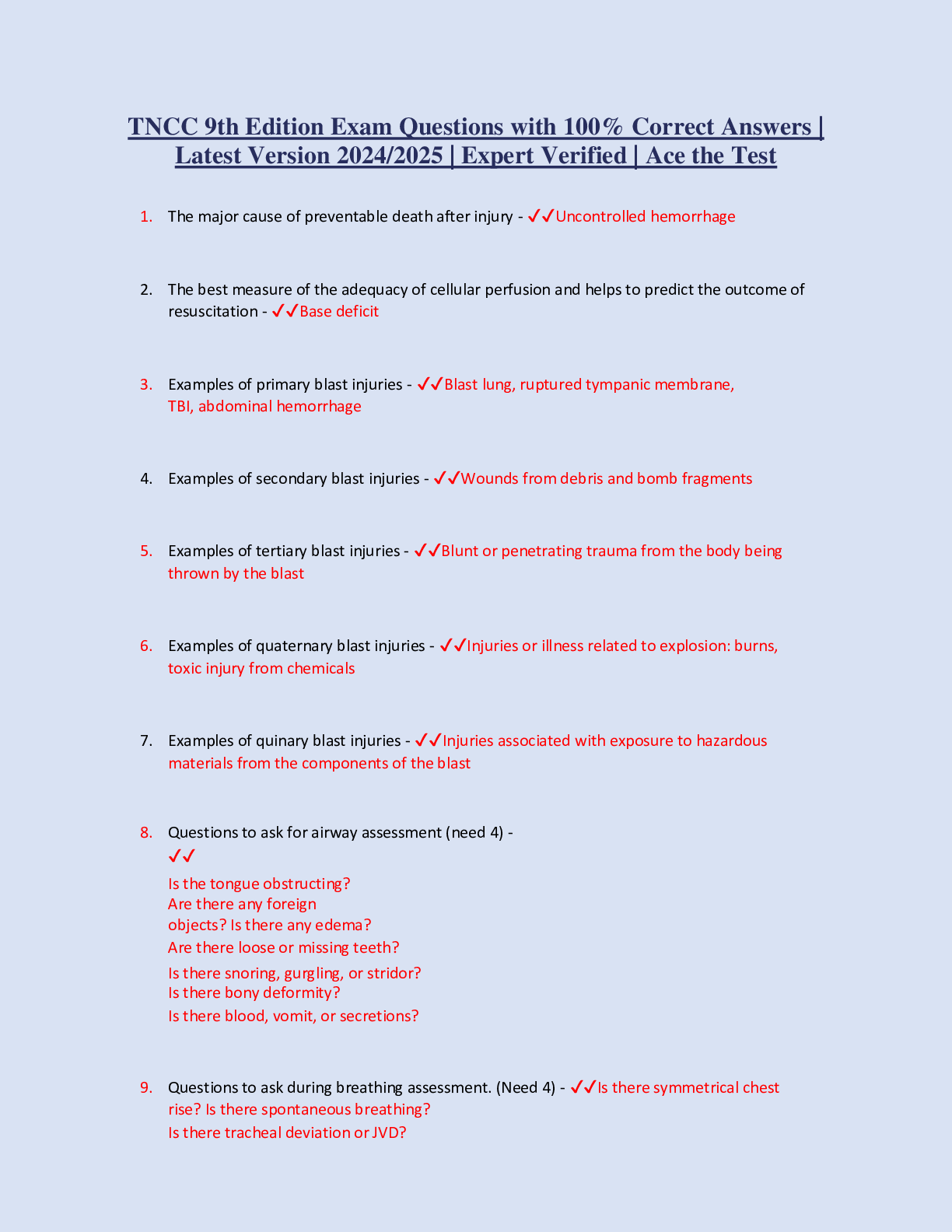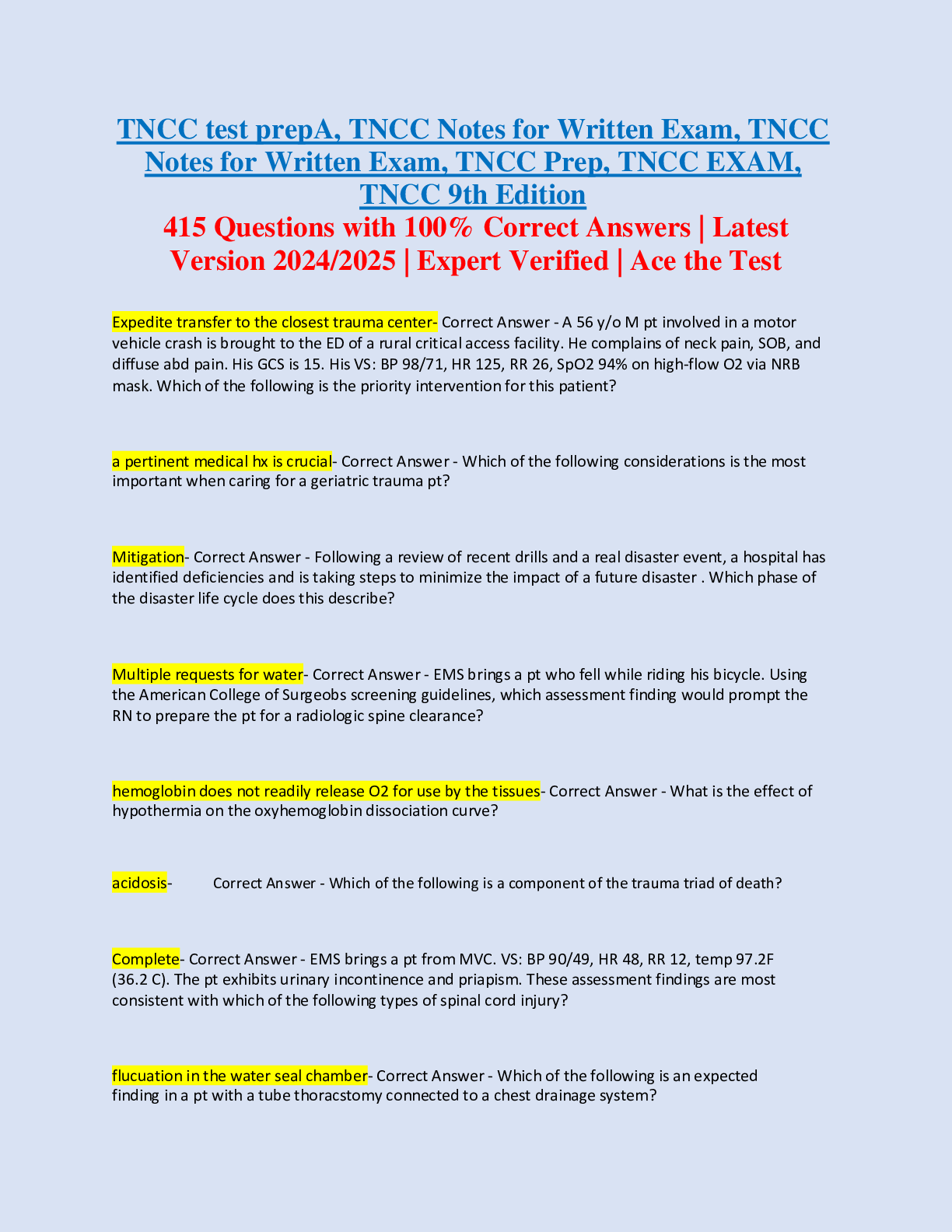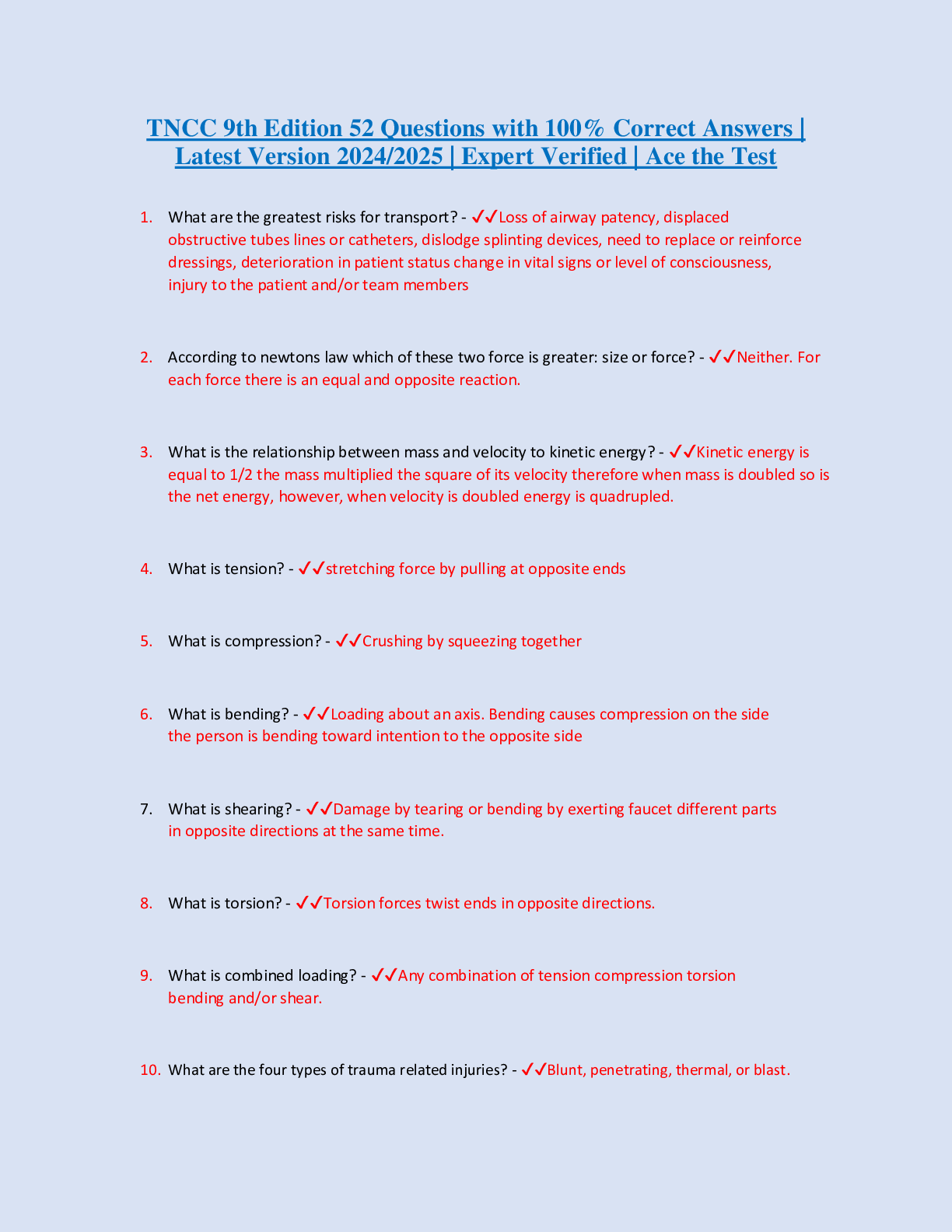NURS 1023 CH 17, 18, 19 ERQs
Document Content and Description Below
CH 17 1. 1. Questions 1. 1. 1.ID: 18662102060 Vomiting is a result of a central nervous system (CNS) injury caused by which of the following? A. A. Impingement directly on the floor of the thi... rd ventricle B. B. Decrease in intracranial pressure C. C. Involvement of the vestibular nuclei Correct Vomiting that is associated with CNS injuries involves the vestibular nuclei or its immediate projections. Vomiting can be caused by an impingement on the fourth ventricle. It can also be the result of brainstem compression from an increase in intracranial pressure. A. D. Decompression of the brainstem Awarded 1.0 points out of 1.0 possible points. 1. 2. 2.ID: 18662102074 Which criterion is not used when determining brain death? A. A. Unresponsive coma B. B. No spontaneous respiration C. C. Isoelectric electroencephalogram (EEG) D. D. Ocular response to head turning Correct With brain death, ocular response to head turning does not occur and pupils are often fixed and dilated. The following criteria determine brain death: 1. 1. Completion of all appropriate and therapeutic procedures with no possibility of brain function recovery 2. 2. Unresponsive coma: absence of motor and reflex movements 3. 3. No spontaneous respirations (apnea): partial pressure of carbon dioxide in the arterial blood (PaCO2) rises above 60 mmHg without breathing efforts, providing evidence of a nonfunctioning respiratory center (apnea challenge) 4. 4. No brainstem function: no ocular responses to head turning or caloric stimulation; dilated, fixed pupils; no gag or corneal reflex 5. 5. Isoelectric (flat) EEG: electrocerebral silence 6. 6. Persistence of these signs for an appropriate period of observation Awarded 1.0 points out of 1.0 possible points. 1. 3. 3.ID: 18662102056 A woman has sustained a traumatic brain injury. She is able to follow simple commands and can manipulate objects. Which term describes this state? A. A. Coma B. B. Vegetative C. C. Minimally conscious Correct The term minimally conscious applies to a severely altered consciousness during which the person demonstrates minimal but defined behavioral evidence of self or environmental awareness. The clinical features include following simple commands, manipulating objects, gestural or verbal yes and no responses, intelligible verbalization, and stereotypical movements. Coma is a state of unarousable neurobehavioral unresponsiveness. A vegetative state is the complete unawareness of self or the surrounding environment and a complete loss of cognitive function. Locked-in syndrome describes an individual who has the content of thought and the level of arousal intact. However, the efferent pathways are disrupted, which means the individual cannot communicate through speech or body movement. A. D. Locked-in syndrome Awarded 1.0 points out of 1.0 possible points. 1. 4. 4.ID: 18662102064 A person experiences a unilateral, partial seizure and maintains consciousness. Which term is appropriate to describe this type of seizure? A. A. Generalized B. B. Focal Correct Focal (partial) seizures only involve neurons unilaterally. They often have a local (focal) onset. Consciousness [Show More]
Last updated: 1 year ago
Preview 1 out of pages

Reviews( 0 )
Document information
Connected school, study & course
About the document
Uploaded On
Feb 02, 2021
Number of pages
Written in
Additional information
This document has been written for:
Uploaded
Feb 02, 2021
Downloads
0
Views
5

